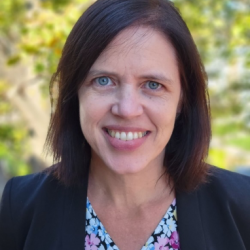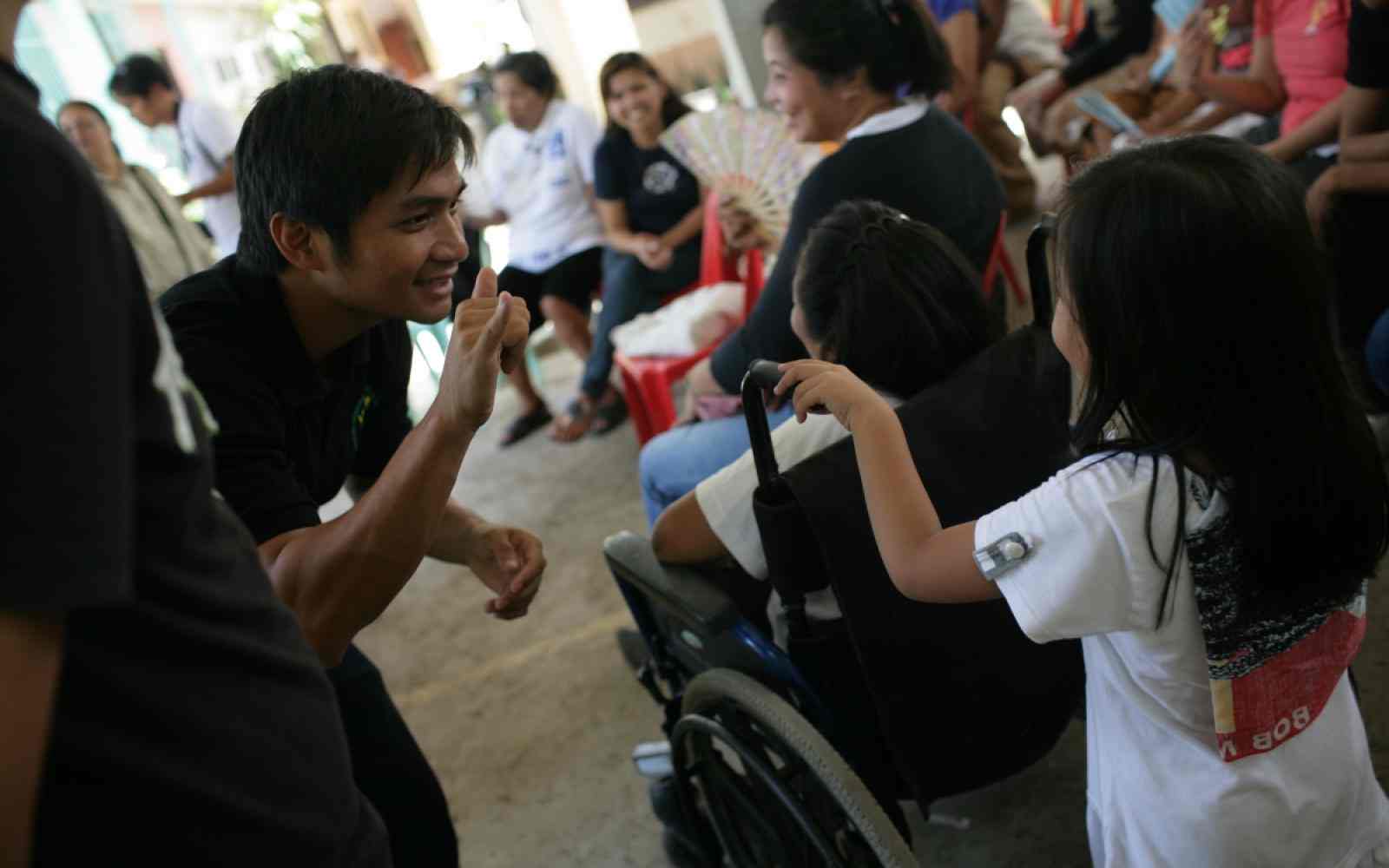
Claire Fallender
Claire has a deep sense of justice and fairness which has led her towards a career in building systems that support social entrepreneurs and young changemakers driving positive impact in the world.
Claire’s trajectory was highly influenced by supportive parents: A mathematician mother who challenged inflexible gender norms until she chose to pivot all her acumen into community leadership in public education and a business executive father whose work trips abroad taught Claire a sincere respect for a diversity of cultures not her own. They purposefully instilled in her a deep sense of fairness and a sense that she could do anything.
Claire’s changemaking journey started in high school where she became a leader in her school’s social change organization, overseeing a dozen student-led initiatives from housing to health to social justice. This work and early experiences volunteering with a community organization in Honduras exposed Claire first-hand to how well-intentioned people from outside a community could unintentionally do more harm than good.
In college Claire led a number of social justice initiatives. For instance, after witnessing labor violations so close to home as an intern with a leading garment worker’s union in New York, she launched the Students Against Sweatshops campaign at Yale, resulting in the administration approving a Code of Conduct to ensure the university’s ethical sourcing of its licensed goods. While studying in Chile, Claire was inspired by an Ashoka Fellow who demonstrated the kind of systems change impact only possible for someone who lives with the social problem and can skillfully put others into powerful roles. She graduated college and joined Ashoka’s team.
At Ashoka, Claire worked at every level of Venture, starting in D.C. and quickly moving to Brazil where she led the Venture/Fellowship program. She co-designed with a Fellow and launched Ashoka Brazil’s first youth changemaking program. Led by her passion for connecting the impact of social entrepreneurs and public policy change, she left Ashoka in 2004 to pursue a degree in Public Affairs at the Princeton School of Public and International Affairs where she eventually worked with UNICEF to develop the first inter-agency guidelines for supporting adolescent girls across 7 UN agencies.
After Princeton Claire joined the Oikos-Cooperation and Development, a social entrepreneur-led Portuguese organization in Mozambique, as a country leader in 2006. Her work catalyzed innovative approaches to support farmer and fishing cooperatives in their mitigation of the impacts of climate change and the HIV epidemic. Unsettled by the lack of support to Mozambican social entrepreneurs and changemakers, Claire returned to Ashoka to lead the Global Venture Program.
In the last decade, Claire has entreprenerd Ashoka’s LeadYoung initiative to help young people and now everyone to tell their Everyone a Changemaker story. She works across our global team of colleagues to develop tools and systems to align our global youth strategy and bring resources to support our core strategy. For example, she intrapreneured the four super key EACH dashboards.
In Claire’s free time, she loves to hike, make Halloween costumes and windchimes. She is grateful for the support of her husband and two young sons.
JP Maunes: putting accessibility and inclusion center stage in the Philippines

In April 2016, JP Maunes became a household name in the Philippines when his sign language interpretation for a heated presidential debate led a number of prominent media personalities to name him as the winner.
Memes with JP’s exhausted hands bursting into flames went viral on social media. He was under the spotlight. And ready to play along.
JP became a hero when just years before, the presence of sign language interpretation and many other mechanisms for inclusion of persons with disabilities were absent from the national discourse.
Today, because of JP’s pioneering work, a prominent senator has sponsored a national law which requires Filipino Sign Language interpretation for televised news, and the police have begun integrating interpreters to help address the impunity of crimes perpetuated against the Deaf community.
JP’s life’s work to change mindsets in Filipino society about disability inclusion started when he was a teenager, growing up in the central Visayas region of the Philippines. His best friend in high school, Peter Paul, was deaf. They met playing basketball and JP made a special effort to learn how to communicate with him.
That sensitivity had come from seeing how his mother, herself a physician with a physical disability, had worked to heal people with disabilities in rural communities. When JP began studying nursing at 17, none of the other students had any exposure or experience working with the Deaf.
JP saw there was a need throughout Cebu City for sign language interpreters in health centers, police stations and even courts and so created a program to train volunteers as interpreters for the Deaf who were “on call” for local agencies.
Over the years, JP formalized this work through the organization Philippine Accessible Disability Services and came face-to-face with the shockingly high rate of sexual and physical abuse among deaf women and minors in the Philippines.
He used this to galvanize a major shift in the law enforcement and judicial system which now demands training for its own staff from deaf teachers to incorporate interpreting and other inclusion mechanisms for people with disabilities into their daily work. JP is not only providing people with disabilities access to information and justice, he is empowering them as leaders in driving this change.
For JP, starting this important work in his teens was not easy. Although his family had helped him empathize with people with disabilities, he grew up in an environment where young people were seen and not heard. He was told to go to school and get a good job and not waste his time on his volunteer signing program. He felt he had no voice and was invisible, perhaps not unlike those whose voice was excluded because of their disability.
It was the principal at a local deaf school who encouraged JP to launch his idea with the youth in a local youth group that would seed the work that is changing the conversation about disability inclusion in the Philippines today.
With the elections behind him, pictures of JP’s burning hands are no longer at the top of everyone’s newsfeeds. But his resolve to ensure that the Philippines become a place where all people are fully able to participate and thrive has only deepened.
Change is happening faster and faster and positive solutions must outpace the problems. Young people, particularly those with disabilities, may hold the key to solving the problems they face and JP is committed to helping them find their power and LeadYoung.
Subscribe to the Early Changemaking Story Series